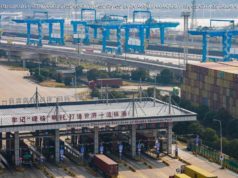The armed forces are not getting their fair share of India’s financial resources, Army chief General Bipin Rawat said on Thursday, arguing for an increase in defence spending.
The armed forces are not getting their fair share of India’s financial resources, Army chief General Bipin Rawat said on Thursday, arguing for an increase in defence spending that would enhance India’s strategic clout.
Amid mounting tensions with Pakistan and China, Rawat insisted on the country looking for new friends and allies to deal with neighbours along the western and northern borders, apparently referring to the two nations.
Pitching for investing more in strengthening India’s armed forces, Rawat, addressing a defence think tank, spoke of China to drive home the point that India’s true potential will be realised only when both economic growth and might of the military go hand-in-hand.
‚While we are developing our economy, the military is not getting its due share. I think here we need to draw a lesson from China, ‚ he said, adding, military and economic growth should be conjoint as they are two tenets of national power.
India’s defence budget for 2017-18 was Rs 2.74 lakh crore which is 1.63 per cent of GDP.
China’s military spending for 2017 has been pegged at $152 billion (Rs 9,761,698,400,000) , which is close to around three per cent of the country’s GDP and three times higher than that of India’s defence budget.
There has been a feeling among security experts and the defence establishment that the modernisation of armed forces is taking place at a very slow pace and that the government has not been allocating adequate funds for it.
India must have close ties with countries like Iran, Iraq and Afghanistan considering the security matrix, the army chief said.
He said such a policy will recreate the outreach India had before partition. The army chief said such a strategy will not only create a two-pronged dilemma for Pakistan, but also help in tackling issues with China.
‚We have to start looking at how do we carry out counter-encirclement for our future adversaries.
‚Developing alliances, developing friends to overcome the (current) deficiency is important. That must be part of our strategic-thought process, ‚ he said.






